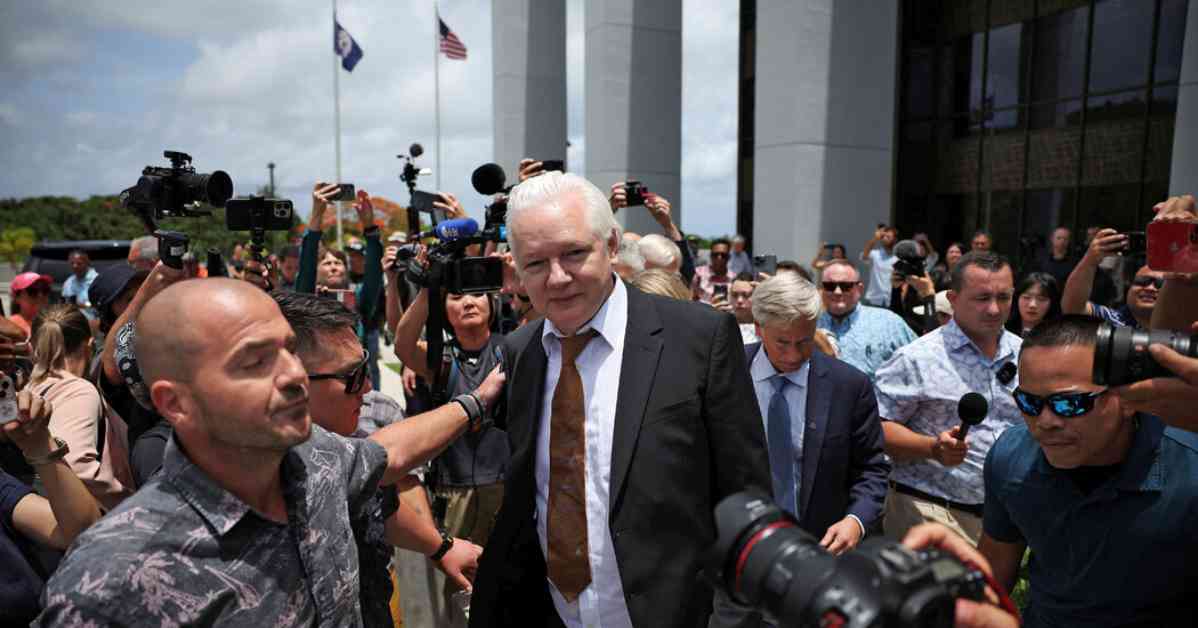Julian Assange, the controversial founder of WikiLeaks, has finally reached a resolution in his long legal battle with the United States. After years of captivity in London, Assange is now able to return to his home country of Australia as a free man, albeit with the status of a felon.
Throughout the negotiations, Assange maintained his stance on never setting foot in the United States to avoid potential lifelong imprisonment. Prosecutors proposed a unique solution by offering him the choice between Guam or Saipan, two American-held islands in the Pacific Ocean. This creative workaround allowed Assange to plead guilty to a felony for violating the Espionage Act without physically appearing in a mainland American courtroom.
After spending five years in a London prison, where he endured extreme confinement conditions, Assange saw the deal as the best option available to him. Saipan, located thousands of miles away from both the U.S. West Coast and Australia, became the designated location for his legal proceedings.
The toll of nearly 14 years spent in exile inside the Ecuadorean Embassy in London and later in Belmarsh Prison was reported to have taken a significant toll on Assange. The prospect of finally achieving freedom and moving on from this chapter of his life must come as a great relief to him.
As Assange prepares to return to Australia, the resolution of his legal battle has elicited mixed reactions from various parties. Some view his actions as a violation of U.S. law, while others see him as a journalist working to expose government secrets. Regardless of one’s perspective, the unified wish from all sides is to see Assange move on from this contentious period in his life.
The story of Julian Assange serves as a reminder of the complexities of modern journalism and the blurred lines between freedom of information and national security. It also raises questions about the limits of press freedom and the responsibilities that come with it. Despite the controversy surrounding him, Assange’s case highlights the importance of upholding journalistic integrity while navigating the legal and ethical challenges that may arise.
In the end, the liberty granted to Assange is a significant development in his ongoing saga. It marks a new chapter in his tumultuous journey and opens the door to potential reflections on the impact of his work and the consequences of his choices. Only time will tell how history will remember Julian Assange and the legacy he leaves behind in the world of journalism and government transparency.





















